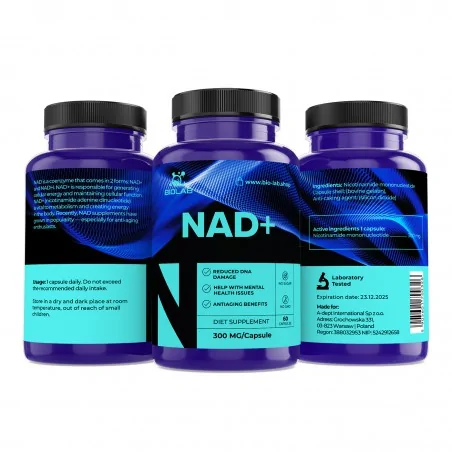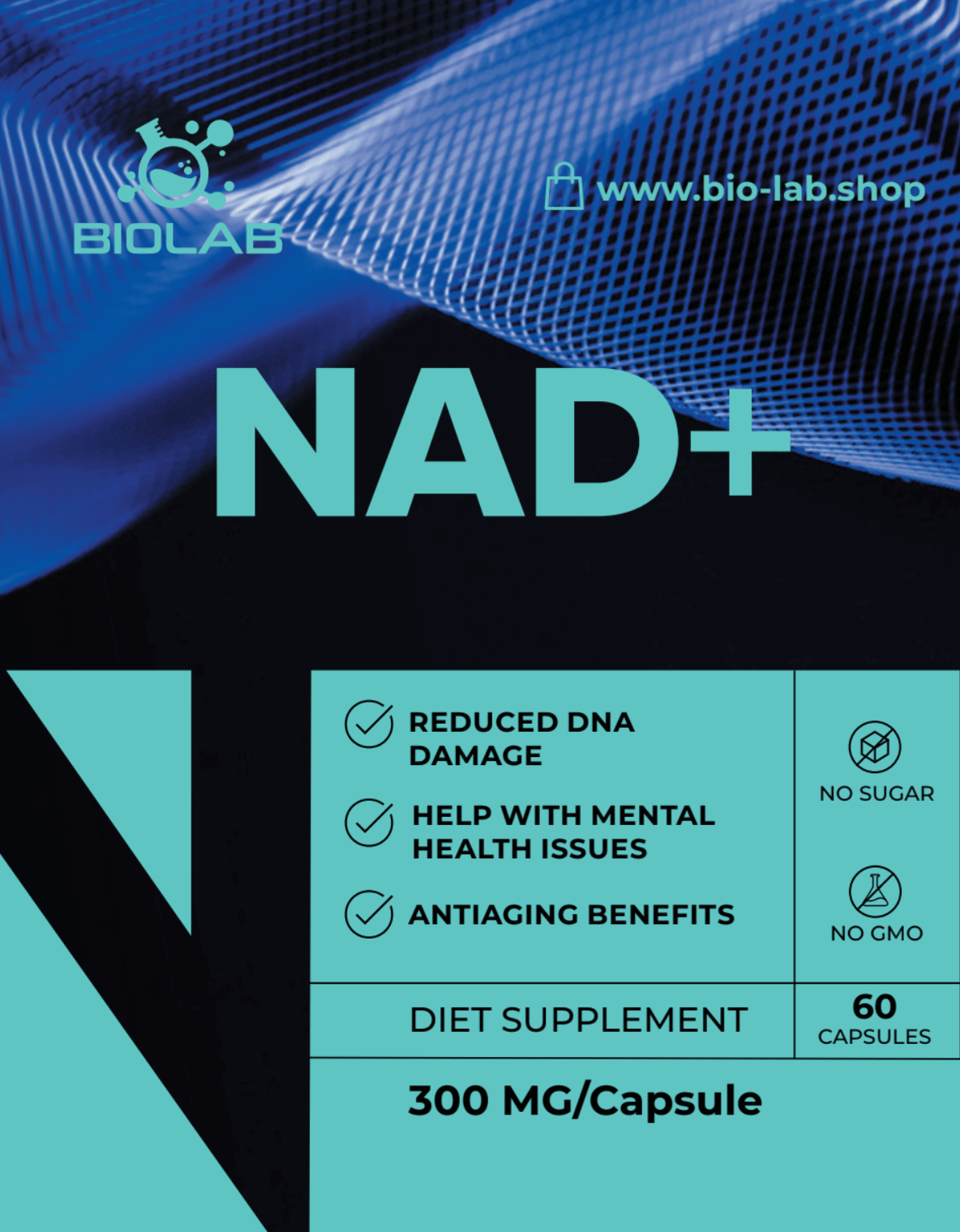- -18%



Product code:


















NAD+
Nicotinamide adenine dinucleotide (NAD+) and its reduced form NADH are essential cofactors for many cellular metabolic reactions and have a central role in energy production.

Nicotinamide mononucleotide (NMN) is a key NAD+ that has been shown to:
It also prevents age-related changes in gene expression in key metabolic organs and enhances mitochondrial oxidative metabolism and mitonuclear protein in skeletal muscle. NAD+ with NMN enhances physical performance and serves as an effective anti-ageing intervention in humans.
Nicotinamide mononucleotide (NMN) is a nucleotide that is best known for its role as an intermediate in the biosynthesis of nicotinamide adenine dinucleotide (NAD+) biosynthesis. Although the pathway for NMN biosynthesis differs between eukaryotes and prokaryotes, two pathways are predominantly in the eukaryotic human - one is via a salvage pathway using nicotinamide, while the other follows nicotinamide riboside phosphorylation. Due to the unavailability of a suitable transporter, NMN enters the mammalian cell in the form of nicotinamide riboside, followed by its conversion to NMN and NAD+. This particular molecule has shown several beneficial pharmacological activities in preclinical studies that suggest its potential therapeutic use.
Primarily mediated by its involvement in NAD+ biosynthesis, the pharmacological actions of NMN include its role in cellular biochemical functions such as:
The recent breakthrough discovery of the anti-ageing activity of this chemical molecule has added valuable essence to the research on this molecule. This review focuses on the biosynthesis of NMN in mammalian and prokaryotic mammalian cells and the mechanism of uptake along with the noted pharmacological effects in a mouse model.

Your review appreciation cannot be sent
Report comment
Report sent
Your report cannot be sent
Write your review
Review sent
Your review cannot be sent
Customers who bought this product also bought:
RESVERATROL EXTRACT...
KANNA 25mg/capsules
ALPHA-LIPOIC ACID...
THYMOSIN ALPHA-1 5mg
YK-11 30ml 300mg
KPV 5mg
IPAMORELIN 2MG
Atomizer
Newsletter
SIGN UP AND STAY UP TO DATE!
We specialize in wholesale and retail supply of high quality peptides.
Category
Our company
Add to wishlist
((title))
Sign in
You need to be logged in to save products in your wishlist.